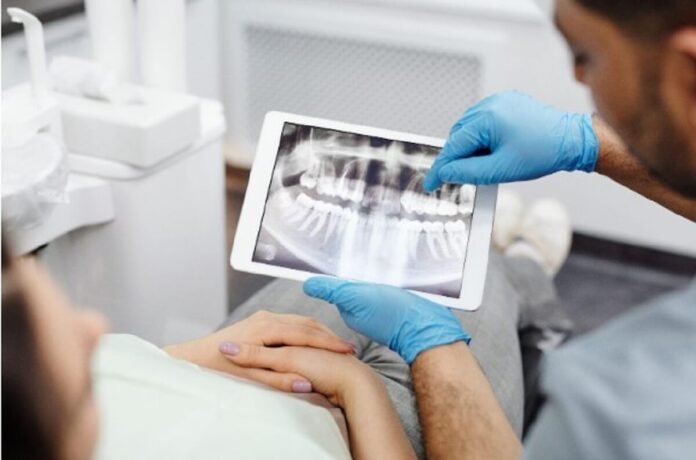Oral and maxillofacial surgery encompasses a diverse range of procedures aimed at addressing various conditions affecting the oral cavity, jaw, and facial structures. This article provides an overview of this fascinating realm of surgical practice, highlighting common procedures, associated benefits and risks, as well as recovery and aftercare considerations.
Furthermore, it explores recent advancements in techniques employed within oral and maxillofacial surgery that have contributed to improved outcomes for patients.
A precise and informative approach is adopted throughout this article to provide readers with a comprehensive understanding of the subject matter.
Overview of Oral and Maxillofacial Surgery
Oral and maxillofacial surgery encompasses a wide range of surgical procedures involving the mouth, jaws, face, and skull. This field of surgery focuses on diagnosing and treating conditions such as facial trauma, oral pathology, dental implant placement, corrective jaw surgery, cleft lip and palate repair, and temporomandibular joint disorders.
Patient eligibility for oral and maxillofacial surgery is determined by various factors including the severity of their condition, overall health status, and their ability to tolerate anesthesia.
Oral surgeons undergo extensive training and education to become proficient in this specialized field. They typically complete a four-year undergraduate degree followed by four years of dental school. Afterward, they must complete an additional four to six years of residency training focused on oral and maxillofacial surgery techniques and procedures. This comprehensive education equips them with the necessary skills to provide safe and effective surgical interventions for patients requiring oral or facial reconstruction.
Common Procedures in Oral and Maxillofacial Surgery
Maxillofacial surgeons commonly perform a range of procedures aimed at addressing various conditions and injuries affecting the mouth, jaws, face, and neck. Two common procedures in oral and maxillofacial surgery are wisdom tooth extraction and corrective jaw surgery.
Wisdom tooth extraction is a surgical procedure performed to remove impacted or problematic wisdom teeth. Impacted wisdom teeth can cause pain, infection, damage to adjacent teeth, and other complications.
Corrective jaw surgery, also known as orthognathic surgery, is a procedure used to correct abnormalities in the jaw structure that can affect bite function and facial aesthetics. This procedure involves repositioning the upper or lower jaw to improve functionality and alignment.
It may be recommended for individuals with conditions such as malocclusion (misalignment of the jaws), facial asymmetry, sleep apnea, or difficulties with chewing and speaking.
Both wisdom tooth extraction and corrective jaw surgery are important interventions performed by maxillofacial surgeons to alleviate discomfort, restore oral health, and enhance overall well-being.
Benefits and Risks of Oral and Maxillofacial Surgery
The benefits and risks of undergoing procedures in the specialized field of oral and maxillofacial surgery have been extensively studied and analyzed. These procedures offer several potential benefits, including improved function, enhanced aesthetics, and relief from pain or discomfort.
For instance, corrective jaw surgery can correct facial deformities and improve bite alignment, leading to improved speech, chewing ability, and overall quality of life. Dental implant surgery can restore missing teeth, improving both oral function and appearance.
However, as with any surgical procedure, there are potential complications and risks associated with oral and maxillofacial surgery. These may include infection, bleeding, nerve damage, or adverse reactions to anesthesia. Additionally, long-term outcomes need to be considered when evaluating the benefits of these procedures.
While most patients experience positive results in terms of improved oral health and well-being following surgical intervention, there is a possibility of relapse or the need for additional treatments over time.
Recovery and Aftercare for Oral and Maxillofacial Surgery
Recovery and aftercare following procedures in the specialized field of oral and maxillofacial surgery are crucial aspects that contribute to successful outcomes. Postoperative care plays a critical role in ensuring proper healing, minimizing complications, and optimizing patient comfort.
Pain management is an integral component of postoperative care, as patients may experience varying levels of pain following oral and maxillofacial surgery. Effective pain management strategies involve a multimodal approach that includes pharmacological interventions such as analgesics, anti-inflammatories, and local anesthetics. Non-pharmacological techniques like ice packs, elevation of the head, and relaxation exercises can also help alleviate postoperative pain.
Additionally, close monitoring by healthcare professionals is essential to assess the patient’s progress, identify any potential complications or adverse effects from medications used during surgery, and provide appropriate support throughout the recovery process.
Overall, comprehensive postoperative care and diligent pain management are vital for successful outcomes in oral and maxillofacial surgery.
Advances in Oral and Maxillofacial Surgery Techniques
Advancements in surgical techniques have significantly contributed to improved outcomes and patient satisfaction in the field of oral and maxillofacial procedures.
One such advancement is the integration of robotic assistance and virtual reality (VR) technology. Robotic assistance allows for more precise and controlled movements during surgery, reducing the risk of human error. Surgeons can use robotic arms to perform delicate procedures with enhanced precision, resulting in better surgical outcomes.
Read Also: Nurturing Your Child’s Dental Well-being: The Role of an Orthodontist
Additionally, the integration of VR technology provides surgeons with a virtual environment that mimics the actual surgery, allowing them to practice complex procedures before performing them on patients. This not only improves their skills and confidence but also reduces operative time and potential complications during actual surgeries.
These advancements highlight the potential for further improvements in oral and maxillofacial surgery techniques, leading to better patient care and overall satisfaction.
If you don’t have a dentist yet, you can search for a term like “dentist near me lafayette la” on the internet, and it should pull up a list of professionals that you can check out.







































